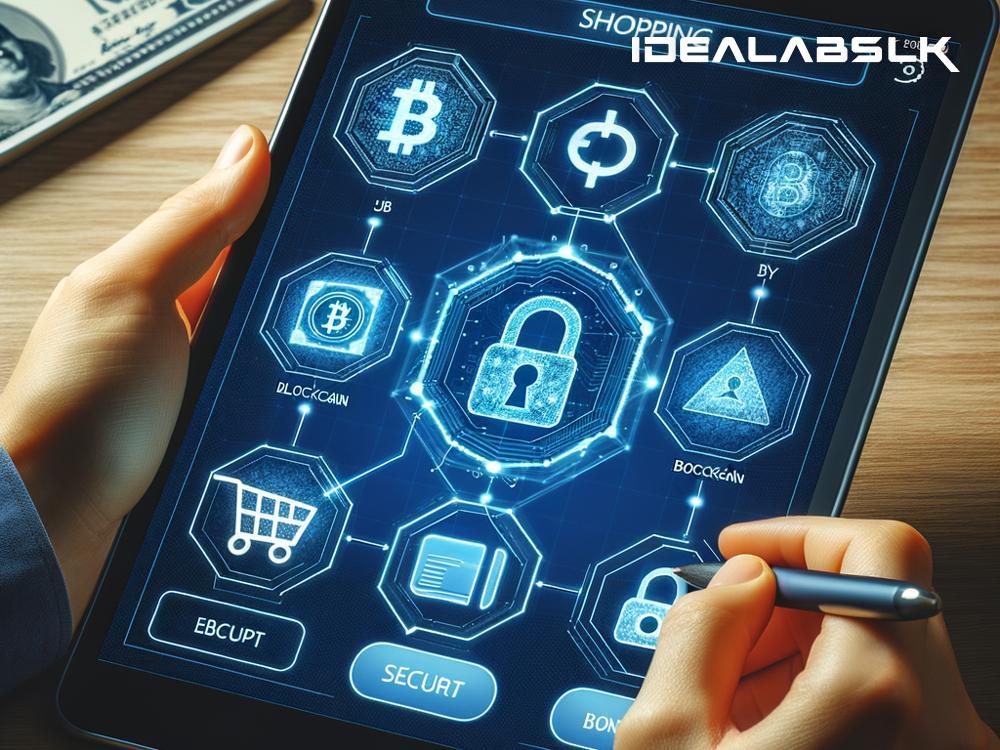Title: Transforming Trust in Online Shopping: The Role of Blockchain in Future E-commerce
In today's digital age, online shopping is like second nature to most of us. With just a few clicks, you can have everything, from groceries to electronics, delivered right to your doorstep. However, as convenient as it is, e-commerce has its fair share of challenges, notably concerning trust and security. Enter blockchain technology – a game-changer that's set to redefine trust in e-commerce by making transactions more transparent, secure, and reliable. Let’s delve into how blockchain is poised to influence the future of online shopping and why it could be the trust revolution the e-commerce sector desperately needs.
Understanding Blockchain: A Quick Overview
Before we dive into its impact on e-commerce, let’s briefly understand what blockchain is. Imagine a digital ledger that’s open for anyone to see and is extremely difficult to tamper with. Each record in the ledger, known as a block, is connected to the previous one, forming a chain. This technology is famous for powering cryptocurrencies like Bitcoin, but its potential extends far beyond that, especially in creating a trustworthy e-commerce environment.
1. Enhanced Security That Builds Trust
One of the biggest concerns for online shoppers is the security of their personal and financial information. Blockchain comes to the rescue with its architecture that is inherently secure. When a transaction is made, whether it’s a payment or the transfer of ownership for goods, it’s encrypted and linked to the previous transaction. This chain of transactions is then verified by multiple computers across the network, making it practically impossible to alter any information. For customers, this means a significant reduction in the risk of fraud and data breaches, ultimately boosting their confidence in online shopping.
2. Transparent Transactions
Have you ever wondered whether the reviews and ratings you see online are genuine? Or if the product you're buying is indeed coming from a sustainable source as claimed? Blockchain introduces a level of transparency that can eliminate these doubts. Since every transaction on a blockchain can be traced and verified, businesses can no longer mask the truth. For instance, a fashion brand claiming to sell sustainable clothing can prove its supply chain's integrity through blockchain. Similarly, customer reviews and product ratings can be verified, ensuring that what you see is what you get. This level of transparency not only builds trust but also promotes ethical business practices.
3. Removing Middlemen for Direct Interactions
E-commerce traditionally involves a lot of intermediaries, from payment processors to third-party sellers, each taking a cut of the profits and potentially complicating transactions. Blockchain offers a more streamlined approach by enabling peer-to-peer transactions. This not only reduces costs – savings that can be passed on to consumers – but also minimizes points of failure and opportunities for fraud. What's more, direct interactions foster a closer relationship between buyers and sellers, leading to better communication and trust.
4. Smart Contracts for Secure and Efficient Transactions
Smart contracts are self-executing contracts with the terms of the agreement directly written into lines of code. They automatically enforce and execute the terms of a contract when certain conditions are met, without the need for intermediaries. In e-commerce, this can revolutionize how transactions are conducted. From automatic payments upon delivery to hassle-free returns and refunds, smart contracts make the buying process more secure and efficient. For consumers, the assurance that terms will be honored as agreed upon significantly enhances trust.
Looking Ahead: A Future Built on Trust
The journey towards fully integrating blockchain into e-commerce is still in the early stages, but the potential is undeniable. The key to widespread adoption lies in overcoming technological barriers and ensuring that both businesses and consumers understand and trust the system. As these challenges are addressed, we can look forward to an e-commerce landscape where trust is not just an expectation but a guarantee.
Imagine a world where every online transaction is secure, transparent, and without unnecessary intermediaries. This is not just a dream; with blockchain, it’s a very achievable future. As we move towards this future, the e-commerce experiences we know today will dramatically transform, ultimately making online shopping safer, more reliable, and more trustworthy for everyone involved.
So, the next time you’re about to click "Add to Cart," imagine how blockchain could make that simple action even more seamless and secure. The future of e-commerce, built on trust and powered by blockchain, is just around the corner, and it promises to be an exciting ride.

